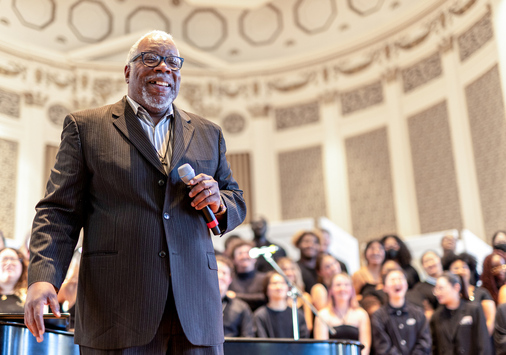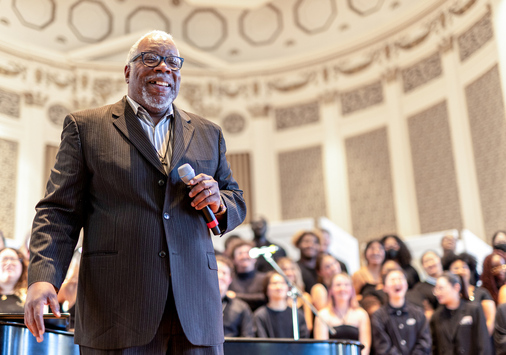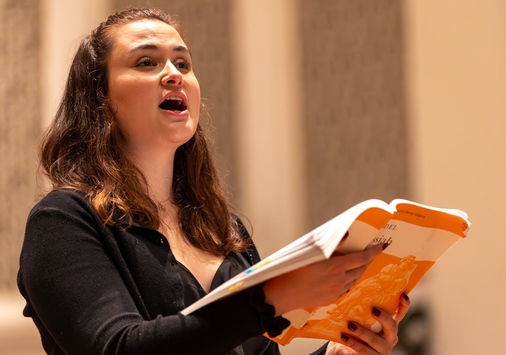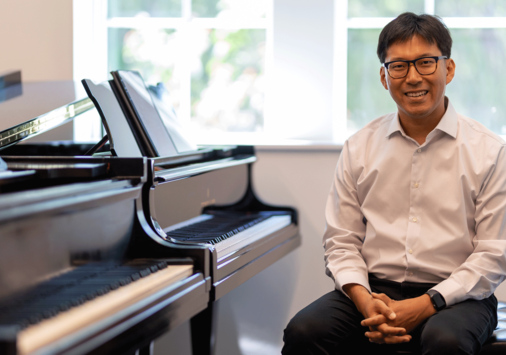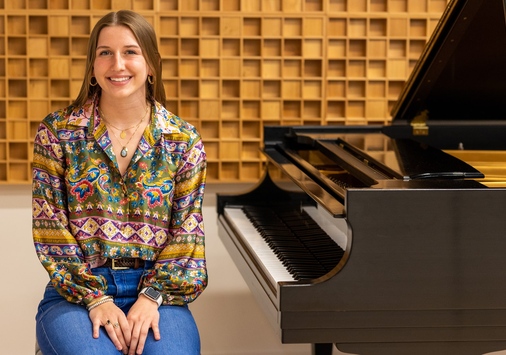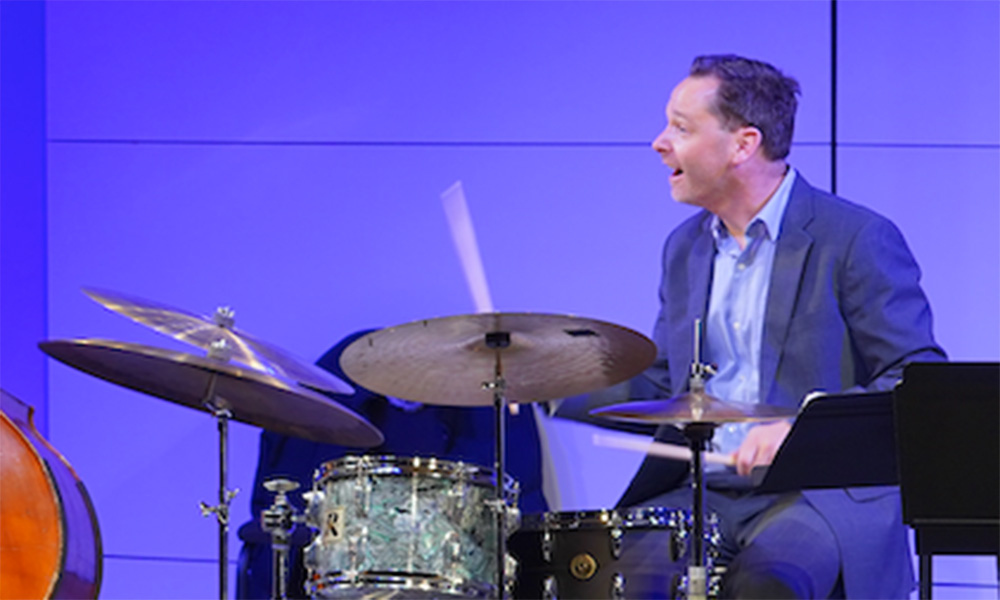
November 15th is National Drummer Day! To celebrate, we sat down with percussionist and instructor Seth Rogers ‘03 for a faculty spotlight. He shared how he got his start in music, his passion for the drums, some insight into his role here at Denison, and advice for arts majors. He has a unique story and is a Denisonian through and through, as he was a student here before he returned to teach.
How did you get started in music (and playing the drums specifically)?
As a young kid my house was close enough to the local high school to where I could hear the marching band, especially the drumline, and I would sometimes wander over to watch rehearsals. From there, I began playing with my school’s music program at 9 years old and continued through high school, mixing in lessons with various private teachers and playing in the local youth orchestra. I really cut my teeth playing along to great alternative rock music of the 90’s and then various terrible garage bands. Super patient parents!
I had no intentions of a career in music coming to Denison as a first-year student in 1999. I was an economics major but did start playing in the jazz band and taking percussion lessons right away. The Econ major was great and pretty natural to me—I joke whenever I see Dr. Laura Boyd that I was basically a Boyd Major, having taken 7 of 9 core classes with her and her husband, then Econ Professor Dave Boyd. I plugged hard at the econ major so that by the end of my sophomore year I only had a couple of classes remaining. At the beginning of my junior year, I began taking more and more music classes, and through that started to see more modeling of how a career in music was really possible. I became a music minor, then a music major along with Econ. My drumming mentor (who became a lifelong friend) was Professor Guy Remonko who passed away just last year. Guy was one of the most giving and gracious people I’ve ever met, and he truly showed me what being a professional drummer meant. I also had significant studies with Tom Carroll and Pete Mills, though Pete (now a good friend and colleague) bristles a bit when I remind him I was his student. I went to grad school for Jazz Studies and shortly returned to Denison to teach, replacing Guy Remonko upon his retirement.
What is a typical day in the life of your role here at Denison?
A: Days at Denison are super varied. I think there is not a great understanding as to what we do in the music area in general. Some faculty in our area teach what might look like a more “normal” Denison faculty schedule; several classroom-based classes each term with lots of prep, grading and advising in between. But most of us do a lot of varied teaching. I do have more “mainstream” classes that meet a few times a week and would look like a typical Denison course in many ways; for example courses in music theory and Latin American music. However, I am always working (read: running) my way around the Eisner Center to various other teaching points where I have one-on-one lessons in drums and percussion along with several musical ensembles in Latin American Music and Indonesian Gamelan. So, honestly, most days I am trying to keep my head above water while getting everything in order for the next scene change.
What is your favorite part of your job?
It goes along with that described above. Given the variety of teaching duties, I get to work with lots of different students. In the music theory area, I work with our dedicated music majors and minors, contrasted with the Gamelan which is actually an ensemble that is mostly populated by non-music students. In many ways, those interactions with non-music students are the most fresh and fun, and it’s great to bring new faces into our musical sphere.
Is there any advice you would give to arts majors?
The arts world is changing so fast that I often feel like my students are in a better position to advise me on this matter. I would just relate to students that life in the arts can be a wide and varied thing. Few people who have careers in the arts actually have hands-on clay or drumsticks or are grinding in the editing bay. Those are obviously achievable goals, but most who work in the arts are working in administration, advocacy, and education. So, find some arts professors early and have discussions about the multitudes of ways one can study and have meaningful engagement with the arts as a career.
Anything else you want to share?
Always tip street musicians!

